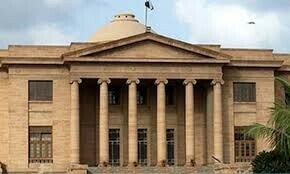KARACHI: A powerless local government system, monopoly of various mafias and lack of policy to tackle influx of people from other areas of the country in the city were pointed out to be some of the major hurdles to urban development in Karachi.
Politicians and rights activists discussed these issues while speaking at a seminar titled “Urban Development from the Perspective of Laymen and Administrators”, which was organised by the Department of Public Administration, the University of Karachi.
Speaking on the occasion, philanthropist Zafar Abbas of the JDC Foundation said there were various mafias operating in the city which were harming it in various ways.
The people of Karachi needed to raise their voice against such mafias, he added.
MQM-P lawmaker says Karachi is a capital ‘not owned’ by province
Former Mutahida Qaumi Movement-Pakistan MNA Muhammad Rehan Hashmi said the local government system in Karachi was not empowered which hindered urban development in various ways. Besides that, many processes at lower level of the government were also very complex.
Another major problem, he said, was not spending on the city the revenue which it generated. Thus, the city remained neglected.
MPA Adil Askari of the same party while addressing the audience said the major issue in the development of Karachi was that the province which it was a part of “did not own it”.
He said other provinces owned their capital cities, but Karachi was a city and provincial capital where it was not quite so.
He said another major problem in the city was that of constant influx of people from other parts of the country, with the administration having no policy to keep a record and data of such migration so that those people could be accommodated in a better way and urban planning be carried out accordingly.
Quoting some estimates, he said only a small portion — eight per cent — of those who arrived and settled in the city were able to build their houses while the rest only expand the slum areas or katchi abadis.
He said poverty and environment in slum areas mostly produced people who were involved in street crimes and other illegal activities.
About the issue of local government, however, he was hopeful that there would soon be changes in the system and it would be empowered.
Advocate and social activist Syed Fahad Ali stressing on the same issue said that such settlements also created health problems and various diseases for their residents as the condition of sanitation was very poor there.
Published in Dawn, July 8th, 2024















































Dear visitor, the comments section is undergoing an overhaul and will return soon.